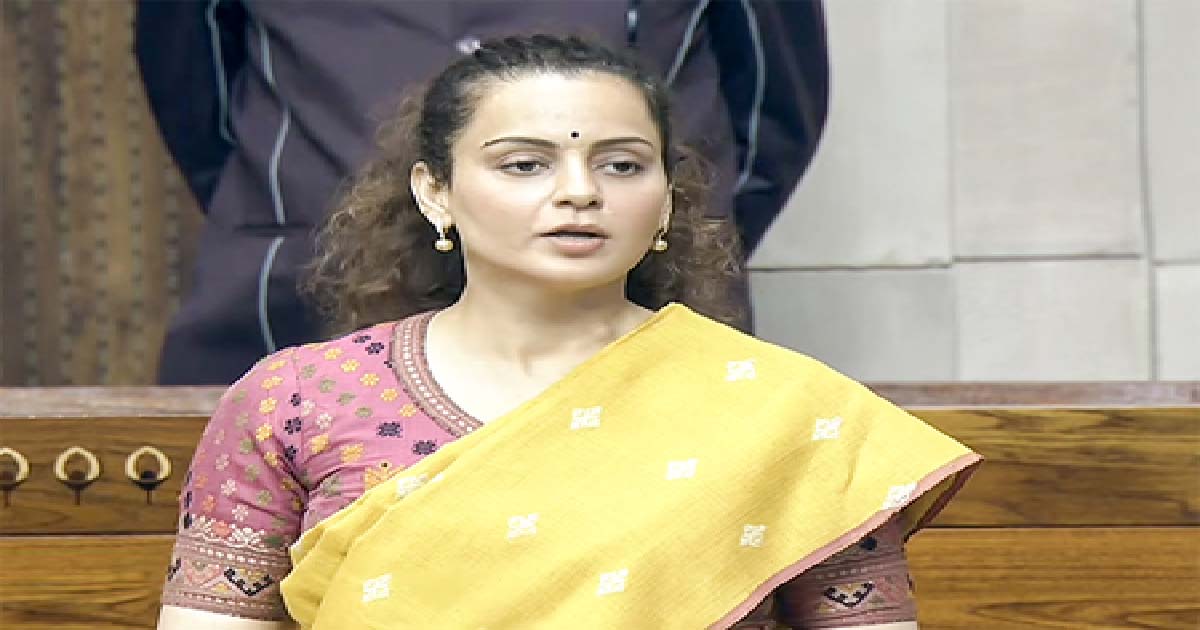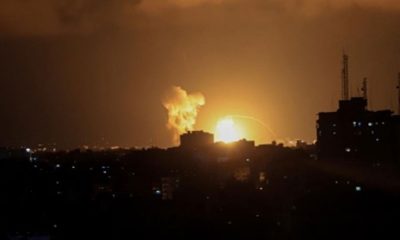International News
A new beginning for Turkey-Israel relations
The reset of diplomatic ties between Turkey and Israel may result in some new paradigm shifts at the regional level besides helping both to focus more on bilateral economic gains.
Recently there have been indications both from Israel and Turkey that the leadership in those countries was mulling a reset in their bilateral ties.
In Israel’s case it was one more step in the direction of regional rapprochement, while for Turkey it is basically aimed at tackling and furthering its economic woes and regional interests.
The announcement by the two countries on August 17 that they’ll exchange ambassadors and normalise bilateral diplomatic relations, follows re-tuning of Turkish diplomatic ties with Saudi Arabia and the United Arab Emirates (UAE).
It seems as if the Turkish leadership has realised that its priority should be to focus more on the internal and nearer home issues such as the country’s economic woes, Kurdish problem and its relations with Cyprus and Greece. Better regional ties will give it more time and energy to focus on tackling the country’s economic woes and expectations of the electorate.
The relations between the two countries soured in 2018 when Turkey expelled the Israeli ambassador from Ankara, after the killing of 60 Palestinians in Gaza during protests against former US President Donald Trump’s decision to relocate the American Embassy from Tel Aviv to Jerusalem.
In fact, the Turkish support to the Palestinian groups, particularly the Hamas and its objection to the Israeli annexation of territories in and around the Gaza Strip has been the bone of contention between the two.
The thaw in ties comes after more than 10 years of tensions. A visit to Turkey by Israeli President Isaac Herzog in March, followed by visits of two countries’ foreign ministers, helped warm relations.
Turkey’s compulsions
President Recep Tayyip Erdogan seems to have realised the futility of Turkey’s hostile policies and stand against Egypt, Israel, Saudi Arabia and the UAE. This stance has made Turkey isolated in the region besides being economically unviable for it.
One of the basic reasons for Turkiye’s animosity against other so-called Islamic countries is the contest for claiming the title of the Leader of the Islamic World. This has resulted in Turkiye blaming the successive Egyptian, Saudi Arabian and UAE governments as the main source of adopting postures against its claim to the Islamic world’s leadership and making it a pariah state in the region.
Historically it was Turkey, which maintained the Two Holiest Shrines of the Muslim world in Saudi Arabia, before oil was discovered in the Kingdom, which changed its fortunes forever. This newfound wealth led Saudi monarchs to lay claim to being the leader of the Islamic world.
Obviously Turkiye tried to resist this change but the fall of the Ottoman empire led it to modify its stand on several issues related to the Muslim Ummah. In addition Turkiye blamed these governments and their policies as responsible for heightening the regional stability for their own selfish interests. In return these states blamed Turkiye for adopting such postures and policies, which led to friction in the region and amongst so called Islamic states.
As retaliation these countries have bettered relations with both Cyprus and Greece, Turkey’s arch foes in the Mediterranean. While at the same time Turkey has improved ties with Qatar, a country which was made an outcast in the Gulf region in 2017 when UAE, Saudi Arabia, Egypt and Bahrain imposed an economic blockade against it.
In addition before facing the electorate next year, Erdogan has shaken hands with Israel in the hope that it may change Turkey’s economic condition with increased economic exchange with Israel, translating into improved economic climate for Turkish citizens.
Israel’s game plan
Recently, Israel has sought to reset its ties with regional countries both Arab and non-Arab. It considers Turkey to be an important factor both regionally and in Gaza also, as Hamas has opened up an office in Istanbul and for the last 10 years it has been operating from Turkey, in addition Israeli authorities feel that closer ties with Turkey will allow it to efficiently conduct intelligence monitoring of Iran.
In addition, Israel feels that if it wants to sell its natural gas to Europe, which was found near its coast in 2010, then the most economically viable route will be through Turkey. It could be a win-win situation for both if they are able to thrash out any future plan for cutting off Russian gas supply to Europe, both diplomatically and financially in the long run.
During the hostile period with Turkey, Israel had come closer to both, Cyprus and Greece. This resulted in increased economic, security and people to people contacts between them. Both countries enjoyed influx of Israeli tourists, who abandoned the Turkey’s coasts. Israel also initiated military cooperation with them and has also been training Greek and Cypriot military forces.
Now Israel will have to balance the geostrategic and potential economic benefits of cooperation with Turkey with Jerusalem’s well-developed ties with Athens and Nicosia. Israeli President Herzog, who played a key role in the Israel-Turkey rapprochement, has given assurances to both Cyprus and Greece that Israel’s new found friendship with Turkey will have no bearing on its existing relationship with Cyprus and Greece.
All in all, one can presume that the present situation points to a scenario where diplomatic, political and security ties may remain cold, as the real target for both the countries is to give a boost to their economic ties. Israel is also aware that Turkey may continue to play the Palestinian card to placate its internal audience.
Over all this odd marriage of convenience might be able to counter other regional alliances and axis’s of power, and both would try to maximise their returns either independently or bilaterally, based on the given situation.
Business
India-Russia friendship steady like pole star amid global uncertainty: PM Modi

New Delhi, Dec 5: Hailing India-Russia ties, Prime Minister Narendra Modi on Friday said that the friendship between the two countries has remained like a pole star amidst the ups and downs faced by the world in the past 80 years.
While making a joint press statement with Russian President Vladimir Putin following their talks at the Hyderabad House in New Delhi on Friday, PM Modi said that the ties between two nations have stood the test of time and thanked Putin for his friendship and unwavering commitment to India while recalling the efforts made by the Russian leadership to elevate bilateral ties.
“Today, I am delighted to welcome President Putin to the 23rd India-Russia Summit today. His visit comes at a time when our bilateral relations are experiencing several historic milestones. 25 years back, President Putin laid the foundation for our strategic partnership. 15 years ago, in 2010, our partnership was granted the status of a Special Privileged Strategic Partnership. For the past two and a half decades, he (President Putin) has nurtured this relationship with his leadership and vision.
“His (President Putin) leadership, under all circumstances, has elevated our ties to new heights. I express my heartfelt gratitude to President Putin, my friend, for this deep friendship and unwavering commitment to India. The world has seen many ups and downs over the past eight decades. Humanity has faced many challenges and crises and amidst all this, the India-Russia friendship has remained like a pole star. This relationship, founded on mutual respect and deep trust, has always stood the test of time,” he added.
Recalling recent heinous terror attacks in both countries, PM Modi said that India and Russia have stood together in the fight against terrorism.
“Today we also discussed regional and global issues. India and Russia have long cooperated shoulder to shoulder in the fight against terrorism. Whether it’s the terrorist attack in Pahalgam or the cowardly attack on Crocus City Hall — the root of all these incidents is the same. India firmly believes that terrorism is a direct attack on the values of humanity and global unity against it (terrorism) is our greatest strength.”
PM Modi announced that India and Russia will cooperate to train Indian seafarers in polar waters. “We will now cooperate to train Indian seafarers in polar waters. This will not only strengthen our cooperation in the Arctic, but will also create new employment opportunities for India’s youth.”
Reiterating India’s stance on Ukraine conflict, he said, “India has advocated for peace in Ukraine from the very beginning. We welcome all efforts to find a peaceful and lasting solution to this issue. India has always been ready to contribute and will continue to do so.”
PM Modi also termed energy security as a strong and important pillar of India-Russia partnership. He stated that cooperation between India and Russia in civil nuclear energy has been crucial in realising shared clean energy priorities.
“Energy security has been a strong and important pillar of the India-Russia partnership. Our decades-old cooperation in civil nuclear energy has been crucial in realising our shared clean energy priorities. We will continue this win-win cooperation. Our cooperation in critical minerals is crucial to ensuring secure and diversified supply chains across the world,” stated PM Modi.
Earlier, taking the India-Russia Special and Privileged Partnership ahead, PM Modi warmly welcomed President Putin at the Hyderabad House to participate in the 23rd India-Russia Annual Summit.
With both countries sharing a longstanding and time-tested bond, the two leaders are holding comprehensive and detailed discussions aimed at further strengthening the bilateral relations.
International News
‘Govt follows protocol’: BJP respond after Rahul Gandhi remarks on Oppn-Putin meeting

New Delhi, Dec 4: After Congress MP Rahul Gandhi alleged that the Centre has been advising foreign delegations against meeting or interacting with the Leader of the Opposition (LoP) – a practice he said was followed during previous UPA and NDA regimes, ruling party leaders on Thursday rejected the claim, asserting that the “government follows due protocol” in all matters.
The startling charge by Rahul Gandhi, while speaking to reporters outside Parliament, comes hours ahead of Russian President Vladimir Putin’s two-day visit to India. His remarks are set to raise eyebrows in the political corridors and also set the stage for heated sparring between the BJP and Congress.
Rahul Gandhi said, “Meetings with the LOP take place with delegations coming from outside. It has been a long-held tradition and has always been done this way,” he said, while citing instances during Manmohan Singh and Atal Bihari Vajpayee governments.”
Speaking to Media, BJP MP Kangana Ranaut said, “These decisions are made by the government. Atal ji was a national asset, and the entire country was proud of him. He was a great patriot. I don’t know why Rahul Gandhi is not being allowed, but in my opinion, his commitment to the nation is questionable. His role in creating unrest and trying to divide the country raises doubts about his intentions. And if Rahul Gandhi is comparing himself to Atal ji, then I would suggest he join the BJP — only then could he become like him.”
BJP MP Bhim Singh said, “Why would the government stop him? He only creates chaos and does not speak where he is supposed to speak.”
Echoing a similar stance, BJP MP Brij Lal added, “The government follows protocol, and work will be carried out accordingly. Rahul Gandhi is only making this political.”
JD(U) leader K. C. Tyagi clarified, “The government does not decide such protocols. Visiting heads of state themselves decide whom they wish to meet.”
Union Minister Ramdas Athawale added, “Foreign leaders visit on the invitation of the ruling party or government. If President Putin wishes, Rahul Gandhi, as LoP, can meet him. The government has no role in that.”
International News
Trump says Putin ‘would like to end war’ with Ukraine

Washington, Dec 4: US President Donald Trump said Russian President Vladimir Putin “would like to end the war” in Ukraine, citing what he described as a “very good meeting” between Putin and two close Trump allies, Jared Kushner and Steve Witkoff, in Moscow.
Trump told reporters at the White House on Wednesday (local time) that he had spoken with Kushner and Witkoff following their talks with Putin. “Their impression was that he would like to see the war ended,” Trump said. “I think he’d like to get back to a more normal life. I think he’d like to be trading with the United States of America, frankly, instead of losing thousands of soldiers a week.”
Trump added, “I thought they had a very good meeting yesterday with President Putin. We’ll see what happens. It’s a war that should never have been started. It’s a war if I were president… that war would have never happened.”
He also reiterated his longstanding claim that the conflict would not have erupted if he had been in office. “If I were president, no war would have ever happened. They would have had 100 per cent of their territory. Nothing would have happened,” he said.
Trump described the battlefield toll as catastrophic. “Think of this — last month, 27,000 soldiers… mostly young soldiers died last month; in one month,” he said. “That’s the only reason I’m trying to help.”
He also said the US was no longer directly financing Ukraine’s war effort, telling reporters, “We’re not spending any money in the war, we’re selling to NATO. We’re not being ripped off like we were under Biden.”
Asked about Kremlin statements suggesting no compromise was forthcoming, Trump replied, “I don’t know what the Kremlin is doing.”
The Trump team’s back-channel contacts with Moscow have drawn global attention amid stalled frontline dynamics and ongoing diplomatic efforts. Casualty figures in the conflict remain contested, while the United States and European allies continue to debate next-phase military and political frameworks for ending the war.
President Putin arrives in New Delhi on Thursday for a summit talk with Prime Minister Narendra Modi.
-

 Crime3 years ago
Crime3 years agoClass 10 student jumps to death in Jaipur
-

 Maharashtra1 year ago
Maharashtra1 year agoMumbai Local Train Update: Central Railway’s New Timetable Comes Into Effect; Check Full List Of Revised Timings & Stations
-

 Maharashtra1 year ago
Maharashtra1 year agoMumbai To Go Toll-Free Tonight! Maharashtra Govt Announces Complete Toll Waiver For Light Motor Vehicles At All 5 Entry Points Of City
-

 Maharashtra1 year ago
Maharashtra1 year agoFalse photo of Imtiaz Jaleel’s rally, exposing the fooling conspiracy
-

 National News1 year ago
National News1 year agoMinistry of Railways rolls out Special Drive 4.0 with focus on digitisation, cleanliness, inclusiveness and grievance redressal
-

 Maharashtra1 year ago
Maharashtra1 year agoMaharashtra Elections 2024: Mumbai Metro & BEST Services Extended Till Midnight On Voting Day
-

 National News1 year ago
National News1 year agoJ&K: 4 Jawans Killed, 28 Injured After Bus Carrying BSF Personnel For Poll Duty Falls Into Gorge In Budgam; Terrifying Visuals Surface
-

 Crime1 year ago
Crime1 year agoBaba Siddique Murder: Mumbai Police Unable To Get Lawrence Bishnoi Custody Due To Home Ministry Order, Says Report


















